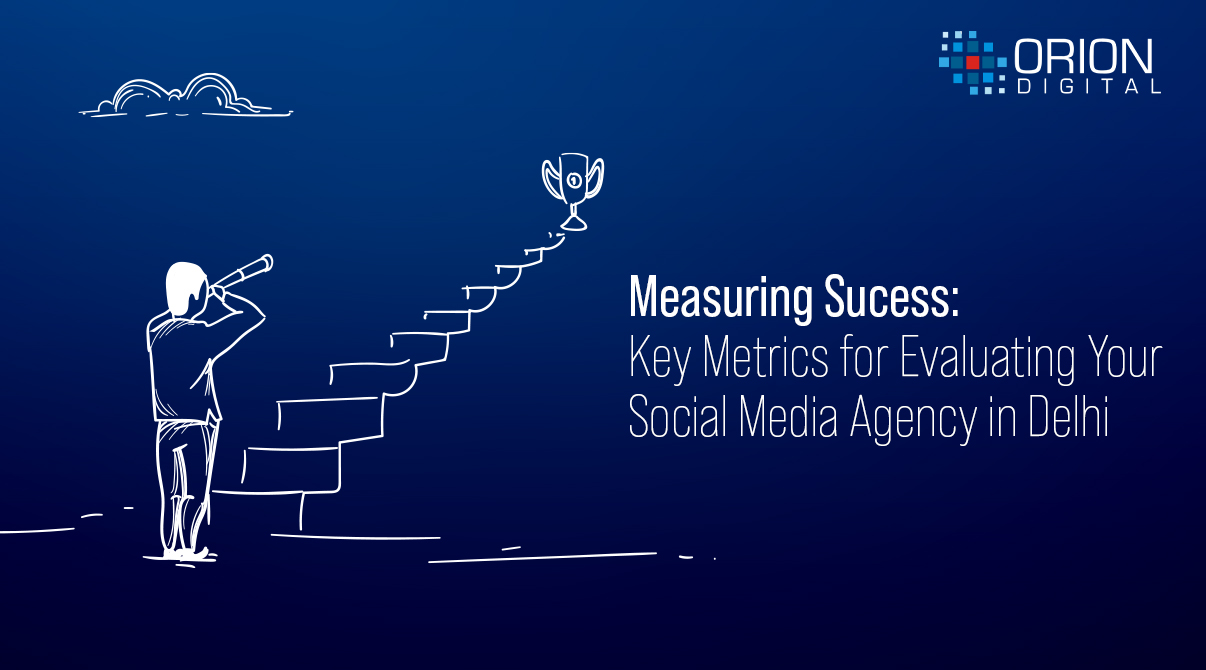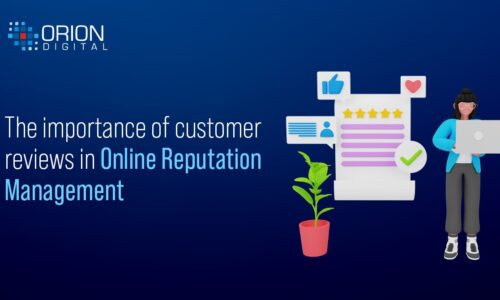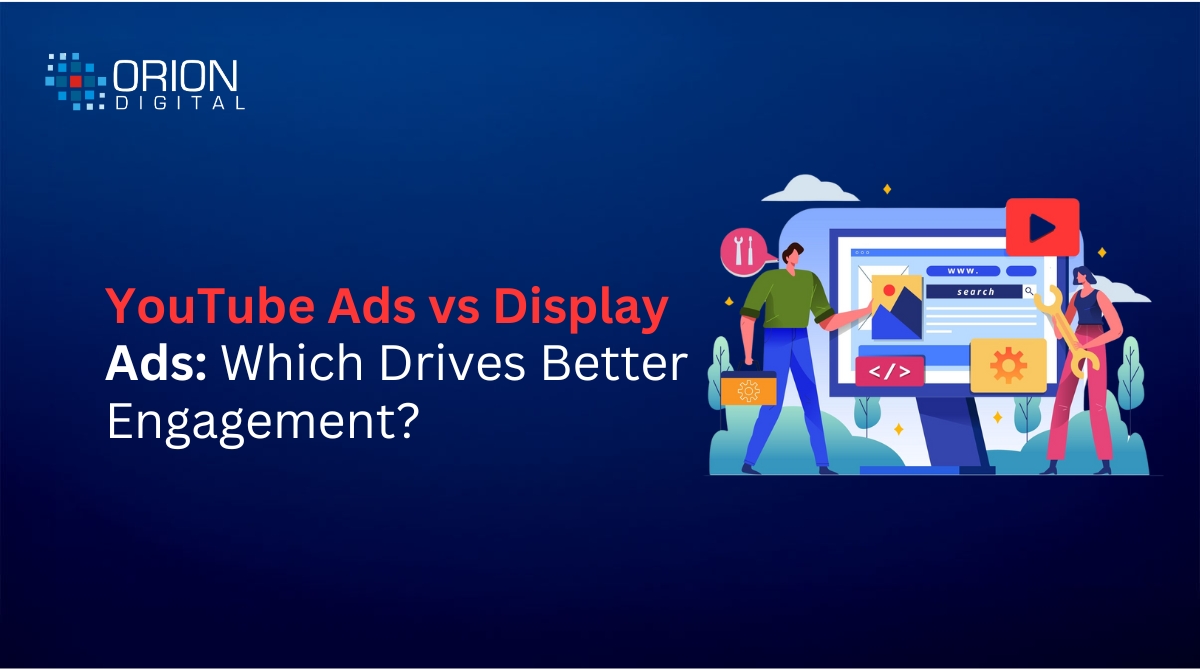
Measuring Success: Key Metrics for Evaluating Your Social Media Performance Agency in Delhi
- admin
- August 23, 2023
- Digital Marketing
- ORM, Social Media
- 0 Comments
Introduction:
The impact of social media on businesses cannot be overstated. Social media Agency in Delhi platforms provide a unique avenue for engaging with audiences, building brand awareness, and driving growth. However, to truly harness the power of social media Agency in Delhi, it’s essential to measure your efforts effectively.
This is where the role of key metrics comes into play, the importance of measuring social media Agency in Delhi success and highlighting the key metrics that businesses should focus on to evaluate their social media performance.
1. The Significance of Measuring Social Media Success
Measuring the success of your efforts online is a critical step in understanding how well your strategies are working and whether they are aligned with your business goals. Without proper measurement, you’re essentially operating in the dark, unaware of what’s aligning with your audience and what needs to be improved. Here are a few reasons why measuring social media success is crucial:
a. Data-Driven Decisions:
Metrics provide valuable insights that can guide your decisions. By analyzing this data, you can refine your strategies and allocate resources effectively.
b. ROI Evaluation:
Measuring metrics helps you determine the return on investment (ROI) of your social media Agency in Delhi campaigns, ensuring that your efforts are yielding tangible results.
c. Strategy Optimization:
Metrics help you identify what’s working and what’s not. This information allows you to adjust your strategies in real-time to achieve better outcomes.
d. Audience Understanding:
Metrics offer insights into your audience’s behaviour, preferences, and engagement patterns, enabling you to curate content that resonates with them.
2. Key Metrics for Evaluating Social Media Performance
Choosing the right metrics to measure your social media Agency in Delhi success is crucial. Here are some key metrics that businesses should focus on to evaluate their social media performance:
a. Engagement Rate:
The engagement rate measures the level of interaction your content receives from your audience. It includes likes, comments, shares, and clicks. A higher engagement rate indicates that your content is resonating with your audience and generating interest.
b. Reach:
Reach measures the number of unique users who have seen your content. It’s a valuable metric for understanding your content’s visibility and potential impact.
c. Impressions:
Impressions represent the total number of times your content has been displayed, regardless of whether it was clicked or engaged with. Tracking impressions helps you understand the overall exposure of your content.
d. Click-Through Rate (CTR):
CTR measures the percentage of users who clicked on a link or call to action in your content. It’s a key metric for evaluating the effectiveness of your content in driving traffic to your website or landing pages.
e. Conversion Rate:
The conversion rate measures the percentage of users who complete a desired action, such as signing up for a newsletter, making a purchase, or filling out a form. It’s a direct indicator of how well your social media Agency in Delhi efforts are contributing to your business goals.
f. Follower Growth:
Follower growth tracks the increase in your social media audience over time. While not being the ONLY indicator of success, a steady and engaged follower base can positively impact your brand’s reach and credibility.
g. Share of Voice:
Share of voice measures your brand’s presence in online conversations compared to your competitors. Monitoring your share of voice helps you gauge your brand’s influence and reputation within your industry.
h. Social Media Referral Traffic:
This metric indicates the number of website visitors who arrived through social media links. Tracking social media Agency in Delhi referral traffic provides insights into the effectiveness of your content in driving website visits.
i. Bounce Rate:
The bounce rate measures the percentage of users who navigate away from your website after viewing only one page. A high bounce rate could indicate that your content is not accepted by users or lacks relevance.
j. Sentiment Analysis:
Sentiment analysis involves evaluating the sentiment (positive, negative, neutral) of user comments and mentions about your brand. It helps you understand how your audience perceives your brand and content.
k. Customer Lifetime Value (CLV):
While not a direct social media Agency in Delhi metric, CLV measures the long-term value of a customer to your business. You can correlate CLV with your social media efforts to determine how effective your strategies are in nurturing valuable customer relationships.
3. Setting Goals and Benchmarking
Measuring social media Agency in Delhi success becomes more meaningful when you have clear goals and benchmarks in place. Here’s how to approach goal-setting and benchmarking:
a. Define Specific Goals:
Determine what you want to achieve through your social media efforts. Whether it’s brand awareness, lead generation, sales, or customer retention, having specific goals allows you to focus your measurement efforts.
b. Use SMART Goals:
SMART stands for Specific, Measurable, Achievable, Relevant, and Time-Bound. Applying this framework to your social media Agency in Delhi goals ensures that they are well-defined and realistic.
c. Analyze Past Performance:
Use past data to set a benchmark for your metrics. These benchmarks provide a reference point for measuring future success and progress.
d. Competitor Analysis:
Benchmarking against your competitors can provide insights into your online performance. Compare your metrics to those of competitors in your industry to identify areas for improvement.
4. Tools for Measuring Social Media Metrics
To measure social media metrics effectively, you’ll need to leverage various tools and platforms. Here are some popular tools that can help:
a. Google Analytics:
Google Analytics provides insights into website traffic, referral sources, and user behaviour, helping you measure the impact of social media Agency in Delhi on your website’s performance.
b. Social Media Analytics Platforms:
Platforms like Facebook Insights, Instagram Insights, and Twitter Analytics offer built-in analytics tools to measure key metrics specific to each platform.
c. Social Media Management Tools:
Tools like Hootsuite, Brand Mentions, and Sprout Social allow you to manage multiple social media accounts and track metrics in one place.
d. URL Shorteners:
URL shorteners like Bitly not only create shorter links but also track click-through rates, providing insights into the effectiveness of your shared links.
e. Social Listening Tools:
Tools like Brand Mention can help you monitor social media Agency in Delhi conversations, track brand mentions, and analyze sentiment.
Conclusion
Measuring the success of your social media efforts is an essential practice for businesses. By focusing on key metrics that align with your goals, you can gain valuable insights into your social media performance, make data-driven decisions, and optimize your strategies for better results.
Remember that social media success is not solely about vanity metrics like follower count; it’s about creating meaningful engagement, driving conversions, and contributing to your overall business objectives. With the right metrics, tools, and a clear understanding of your goals, you can effectively measure and elevate your social media performance and reach new heights.
Summary
- Define and set your goals before planning for a campaign
- Always use SMART Goals
- Always evaluate your social media performance
- Stay in touch with your audience and always listen to their opinion




